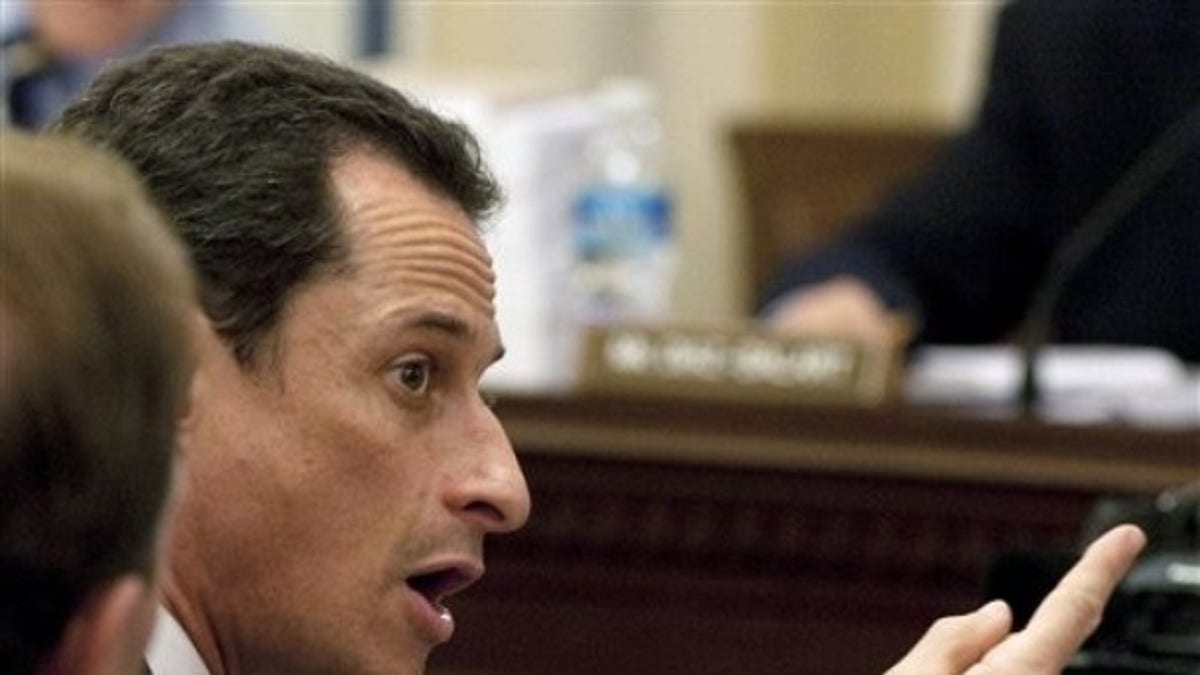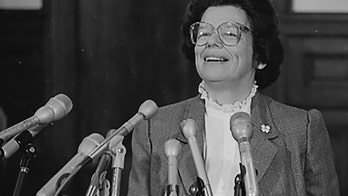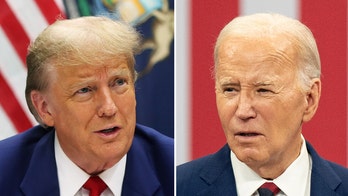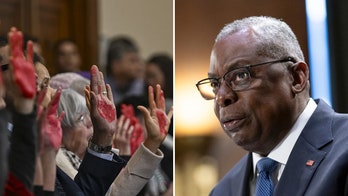
Rep. Anthony Weiner, D-NY, during the House Rules Committee meeting on Capitol Hill in Washington, Saturday, March 20, 2010. (AP)
A liberal uprising over how much wealthy estates of the deceased should be taxed wasn't strong enough to upend the massive tax package negotiated by President Obama and Republican leaders, but the estate tax remains a contentious issue on Capitol Hill.
In the end Thursday, the House voted for the $858 billion package that includes a federal estate tax, called a "death tax" by critics, that will allow the first $10 million of a couple's estate to pass to heirs without taxation. The rest would be taxed at a 35 percent rate.
Many House Democrats wanted a higher estate tax, one that would allow couples to pass only $7 million tax free, taxing anything above that amount at a 45 percent rate. They argued that the higher estate tax would affect only 6,600 of the wealthiest estates in 2011 and would save $23 billion over two years.
House Speaker Nancy Pelosi called the estate tax the "most egregious provision" in the bill and held a vote that would have imposed the higher estate tax. It failed in a 194-233 vote.
But that doesn't mean the battle over the estate tax is over just yet. Democrats could still seek to raise the tax in separate legislation next year.
Rep. Anthony Weiner, D-N.Y. said Friday that Republicans outmaneuvered Obama by getting the estate-tax provisions and an extension of the Bush tax cuts for the wealthy.
Republicans turned out to be "better poker players" than the president," Weiner told CBS' Early Show. He said that when the latest agreement expires in 2012, Obama and lawmakers will face enormous election-year pressure to extend the tax cuts again or make them permanent.
Weiner said that Obama's future negotiations with Republicans should be more cautious.
"Bipartisanship has to be a means, not an end," he said. "I'm not sure the president gets that yet, but I am going to work hard to make him a success."
The estate tax has been rallying cry for Democrats ever since President George W. Bush started phasing it out last decade. The tax was zero this year and if Congress hadn't passed a deal, it would have returned at the higher rate of 55 percent for estates valued at more than $1 million.
Supporters of the estate tax say it is an effective means of addressing a growing income inequality gap in America. But opponents argue that the tax is unfair because it hits the descendants of individuals and couples who have already paid taxes on the money.
The U.S. estate tax was born in 1916, when Congress introduced the modern-day income tax system. Estate and gift tax receipts has been "near or below 2 percent of federal revenues" since 1945, according to the Congressional Budget Office. "In recent years, they have been less than 1.5 percent of federal tax revenues."




